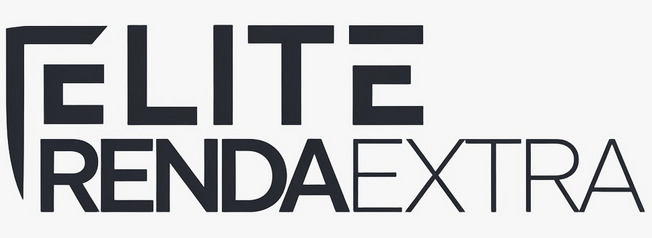Deciding whether to take out a personal loan is a significant financial step that many individuals consider at various points in their lives. These loans can offer a flexible way to finance various needs, from consolidating debt to covering unexpected expenses. However, like any financial product, they come with their own set of advantages and disadvantages that warrant careful consideration.
Understanding the full picture of what a personal loan entails is crucial before committing. This exploration aims to provide a balanced view, delving into the potential benefits and drawbacks, so you can make a more informed decision about whether this financial tool aligns with your current circumstances and future goals.
Understanding Personal Loans: The Basics
A personal loan is typically an unsecured loan, meaning it doesn’t require collateral like your house or car. You borrow a fixed amount of money from a lender (like a bank, credit union, or online lender) and agree to pay it back in regular installments over a set period, usually with a fixed interest rate. The funds from a personal loan can be used for a wide array of purposes, offering considerable flexibility.
The Pros: Advantages of Taking Out a Personal Loan
Personal loans can be an attractive option for several reasons, offering benefits that might suit various financial situations.
Flexibility in Use
One of the primary appeals of a personal loan is its versatility. Unlike mortgages or auto loans, which are designated for specific purchases, personal loan proceeds can often be used for almost anything. Common uses include consolidating high-interest debts, financing home improvements, covering medical bills, paying for a wedding, or funding a significant purchase. This adaptability makes them a useful tool for managing diverse financial needs.
Debt Consolidation Potential
If you’re juggling multiple debts, such as credit card balances with high interest rates, a personal loan can be a strategic way to consolidate them. By taking out a personal loan to pay off these other debts, you could potentially simplify your finances into a single monthly payment, possibly at a lower overall interest rate. This can make debt management more straightforward and could save you money on interest in the long run.
Fixed Interest Rates and Predictable Payments
Most personal loans come with fixed interest rates. This means your interest rate, and consequently your monthly payment amount, will remain the same throughout the life of the loan. This predictability can be very helpful for budgeting, as you’ll know exactly how much you need to allocate for your loan payment each month, without worrying about fluctuating rates impacting your costs.
Potentially Lower Interest Rates than Credit Cards
For individuals with a good credit history, personal loans often offer lower interest rates compared to the standard rates on credit cards. If you’re looking to finance a large purchase or consolidate debt, securing a personal loan could mean paying significantly less in interest over time than if you were to carry a balance on a high-APR credit card.
No Collateral Required (Typically)
The majority of personal loans are unsecured. This means you don’t have to pledge an asset, like your home or car, as collateral. If you encounter difficulties in repaying the loan, your assets are not immediately at risk of seizure by the lender, which can provide some peace of mind. However, defaulting on an unsecured loan still has serious consequences, including damage to your credit score and potential legal action.
The Cons: Disadvantages and Risks of Personal Loans
While personal loans offer several benefits, it’s equally important to be aware of their potential downsides and risks.
Interest Costs Can Add Up
Even with a relatively low interest rate, you will still pay interest on the amount you borrow. Over the life of the loan, this can add a considerable amount to the total cost of what you financed. The longer the loan term, the more interest you’ll generally pay. It’s essential to calculate the total interest payable to understand the true cost of the loan.
Origination Fees and Other Charges
Some lenders charge an origination fee for processing a personal loan, which is typically a percentage of the loan amount (often 1% to 8%). This fee is usually deducted from the loan proceeds, meaning you receive less than the full amount you’re borrowing. Other potential fees could include late payment fees or prepayment penalties (though the latter are less common). These fees can increase the overall cost of the loan.
Impact on Credit Score
Taking out a new personal loan will involve a hard inquiry on your credit report, which can temporarily lower your credit score by a few points. While making timely payments will help build a positive credit history over time, missed or late payments can significantly damage your credit score. Additionally, increasing your overall debt load can affect your debt-to-income ratio, a factor lenders consider.
Risk of Accumulating More Debt
If a personal loan is taken out without a clear repayment plan or to fund non-essential spending, it can lead to a cycle of debt. For instance, if you consolidate credit card debt with a personal loan but then continue to spend on those credit cards, you could end up in a worse financial position than before. Responsible borrowing and disciplined spending are key.
Fixed Commitment
A personal loan represents a fixed, long-term financial commitment. Your circumstances might change during the loan term (e.g., job loss or unexpected expenses), but the obligation to make monthly payments remains. Being locked into these payments can strain your budget if your financial situation deteriorates.
When Might a Personal Loan Be a Sensible Choice?
A personal loan can be a good idea in specific scenarios, such as:
- Consolidating higher-interest debt: If you can secure a lower interest rate than what you’re currently paying on other debts.
- Financing essential large purchases: For necessary items or services like urgent home repairs or significant medical expenses when other funding isn’t available.
- Improving your home: For renovations that can add value to your property, especially if the interest rate is favorable.
When Should You Reconsider a Personal Loan?
Conversely, a personal loan might not be the best option if:
- You’re funding discretionary spending: Using a loan for non-essential items like luxury vacations or gadgets can lead to unnecessary debt.
- You cannot comfortably afford the repayments: Stretching your budget too thin can lead to financial stress and potential default.
- Lower-cost alternatives are available: Consider options like 0% APR credit card offers (for a short term) or borrowing from savings if feasible.
- Your credit score is poor: You might only qualify for loans with very high interest rates, making the loan prohibitively expensive.
Key Considerations Before Applying
Before you decide to apply for a personal loan, carefully evaluate these factors:
Your Financial Health: Assess your current income, expenses, and existing debt. Can you realistically afford another monthly payment?
Interest Rates and APR: Shop around and compare offers from different lenders. The Annual Percentage Rate (APR) provides a more complete picture of the loan’s cost as it includes interest and most fees.
Loan Terms and Fees: Understand the repayment period, any origination fees, late payment penalties, or prepayment conditions.
The Purpose of the Loan: Is the loan for a genuine need or a want? Will it improve your financial situation or add unnecessary burden?
Exploring these aspects thoroughly can help you determine if a personal loan is the right financial move for your unique situation. Making an informed choice is paramount to using debt wisely and maintaining financial well-being.



